What is Animal Rights?
Animal rights is the belief that animals should be treated with the same moral consideration and legal protections as humans. It is the understanding that animals are sentient beings capable of experiencing pain, suffering, and pleasure, and therefore should not be exploited, harmed, or used for human purposes. Animal rights advocates argue that animals have inherent value and the right to live free from cruelty, confinement, and unnecessary use in industries such as food production, clothing, experimentation, entertainment, and sports. This includes advocating for the abolition of practices such as factory farming, animal testing, fur and leather production, circuses, zoos, and other forms of animal exploitation, as well as promoting veganism, adopting companion animals from animal shelters, and promoting alternatives to animal products and research methods.
Understanding Animal Rights
Animal rights refer to the belief that animals are entitled to certain fundamental rights, similar to those enjoyed by humans. This concept suggests that animals should not be considered as mere property, but rather as sentient beings deserving of respect, dignity, and protection from harm and exploitation.
Animal rights advocates argue that animals have inherent value and should not be used for human purposes, such as food, clothing, scientific experimentation, or entertainment. They believe that animals have the right to live their lives free from suffering, pain, and cruelty.
The principles underlying animal rights center around the recognition of animals’ capacity to experience pleasure, pain, and emotions. Supporters argue that animals have an inherent right to life, bodily integrity, freedom, and autonomy. They advocate for abolishing practices such as factory farming, animal testing, and practices that involve animal entertainment (like circuses and bullfighting) in order to align our treatment of animals with these rights.
Animal rights also encompasses the belief that animals should not be treated as property or commodities but rather as individuals with their own interests. This includes granting animals the right to not be owned, bought, or sold, and the right to live in their natural habitats without interference.
While animal rights and animal welfare are related concepts, they differ in their ultimate goals. Animal welfare focuses on improving the treatment and well-being of animals within the existing human-animal relationship, while animal rights seeks to challenge and transform this relationship by granting animals certain rights and altering societal attitudes and practices.
Critics of animal rights argue that animals do not possess the same moral worth as humans and that human interests should take precedence. They may contend that animal rights advocates prioritize animals over human well-being or that granting animals rights would lead to impractical or extreme consequences.
Overall, understanding animal rights involves considering the ethical and moral considerations surrounding our treatment of animals and questioning societal norms and practices that may perpetuate their exploitation or harm.
Exploring the Concept of Animal Rights
Animal rights is the ethical principle that animals have inherent rights, just like humans do, and should be treated with respect, compassion, and fairness. It acknowledges that animals are sentient beings, capable of experiencing pain, pleasure, and a range of emotions. Therefore, they should not be treated solely as resources or property for human use.
Advocates for animal rights believe that animals have the right to live free from unnecessary suffering, exploitation, and cruelty. This includes the right to live in their natural habitats, the right to be free from physical and psychological abuse, and the right to be protected from invasive and harmful experiments.
The concept of animal rights challenges the traditional perspective that animals exist solely for human use and benefit. It questions the idea that animals are lesser beings and highlights the interconnectedness of all living creatures. Animal rights proponents argue that animals should have legal protections and standing, similar to human rights, to ensure their well-being and prevent their mistreatment.
Animal rights encompass various issues, such as the use of animals in entertainment, food production, research, and fashion. Animal welfare organizations, activists, and scholars advocate for changes in laws and practices to promote animal rights, such as the abolition of animal testing, the end of factory farming, and the banning of practices that cause harm to animals for human pleasure, such as hunting or using animals in circuses.
Opponents of the animal rights movement often argue that animals do not possess the same moral agency as humans and, therefore, do not deserve the same rights. They assert that humans have a superior position in the moral hierarchy, granting them the right to use animals for their own purposes. These viewpoints often clash with those advocating for animal rights and create ongoing debates surrounding the balance between human interests and the moral consideration of animals.
In conclusion, the concept of animal rights challenges the traditional use and exploitation of animals for human interests. It seeks to recognize animals as sentient beings with a right to live free from unnecessary suffering and exploitation. The animal rights movement continues to promote awareness, change laws, and encourage ethical treatment of animals in all aspects of human society.

+ There are no comments
Add yours